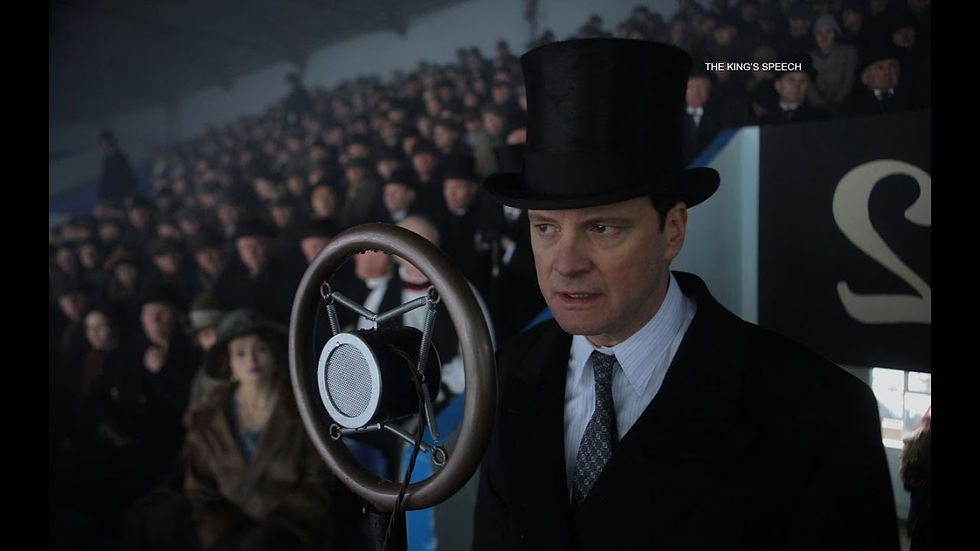7 Leadership Lessons to Learn from Movies & TV Shows
- Cosmic Centaurs
- Jul 10, 2024
- 5 min read
Updated: Jul 15, 2024
In our work helping leaders diagnose the organizational challenges preventing their teams and businesses from thriving, we find inspiration everywhere. Team Centaur, being curious storytellers, found compelling leadership lessons in the content we consume.
From exercising empathy to creating inclusive work environments to making decisions informed by data, check out the lessons we extracted from 7 entertaining and insightful TV shows and movies.
1- The WeWork Story: Visionary Leadership
The WeWork story serves as a reminder that great leadership requires balancing bold aspirations with the realities of operational and strategic management.
The Hulu documentary on WeWork vividly illustrates that while a compelling vision can ignite rapid growth and innovation, it must be anchored in robust strategic planning to achieve sustainable success. Adam Neumann’s unwavering self-confidence and his ability to embrace failure as a learning opportunity fueled WeWork's meteoric rise. His belief in his vision of creating communities of connected workers, rather than just selling shared office space, was central to their initial success. However, the series also highlights that without effective planning even the most visionary enterprises can falter. Neumann’s downfall wasn’t due to rapid growth but rather the lack of a sustainable growth strategy and overzealous spending for the sake of expanding. The documentary highlights a crucial lesson for leaders: visionary ideas need a solid groundwork of practical execution, stakeholder alignment, and financial prudence to thrive and endure truly.

2- Moneyball: Data-Driven Decision Making
"Moneyball" tells the story of Billy Beane, the general manager of the Oakland Athletics, who revolutionizes baseball using data analytics to build a competitive team on a limited budget. Beane’s approach underscores the importance of data-driven decision-making in leadership. By challenging traditional methods and relying on statistical analysis, Beane demonstrates that innovative thinking and evidence-based strategies can lead to success. In today’s data-rich environment, this lesson for leaders is about investing in analytics, demonstrating how data-driven decision-making creates both efficiency and effectiveness in their organizations. For frameworks to drive effective decision-making, check out this article.

3- The Intern: Starting Over
At an age when most are settling into retirement, this movie is about a man's journey of rediscovery and purpose. Robert De Niro’s character “Ben Whittaker” is a widowed seventy-year-old, retired executive who feels lost and without a sense of purpose in his new-found retirement. He applies to an internship program for senior citizens; there, he begins working with Jules. Ben perfectly exemplifies what it means to start over in life, regardless of setbacks. Ben's story isn't just about starting over, but also about converting life's curveballs into stepping stones. He takes retirement and turns it into meaning and purpose, while positively influencing everyone with his mentorship abilities and nurturing personality. He is both confident and humble, reassuring and authentic. He is a testament to resilience and adaptability, and proof that starting over isn’t limited by age or circumstance. This movie is truly inspiring in showing how to handle life's challenges. Instead of sitting back and giving up, Ben turns the situation to his benefit, positively impacting everyone else's lives. Quoting Ben: “Well, I still have music in me, absolutely positive about that.”.
Leaders continuously with unexpected challenges that might derail them from their planned journey. Ben's example is a reminder that every leader is capable of turning setbacks into valuable opportunities.

4- Hidden Figures: Challenging the Status Quo & Embracing Change
Based on the book by Margot Lee Shetterly, and actual events, the film “Hidden Figures” presents the story of a team of three female African-American mathematicians who served a vital role in NASA during the early years of the U.S. space program. Amid racial and gender discrimination, these women challenged the status quo to reach their goals and live by their highest potential, ultimately shaping history. They also inspired fellow leaders, such as the head of their group, and team members to challenge the status quo and embrace diversity. This story teaches us two lessons in leadership: the importance of challenging the status quo, and the courage to embrace change.
The local judge allowed Mary to attend night classes at all-white Hampton High School, for the first time in history, to become a NASA engineer. Al Harrison, head of the “Space Task Group”, allowed Katherine - the first African-American woman on the team - to be included in high-level meetings to calculate the space capsule's re-entry point. He also embraced diversity by destroying the "colored" restroom signs and abolishing restroom segregation, after learning she was forced to walk half a mile (800 meters) to use the nearest restroom designated to "colored" people.
Leaders constantly encounter changes in their environment, compelling them to adapt and occasionally make difficult decisions. “Hidden Figures” serves as a reminder that leaders can and should remove the obstacles hindering their team’s performance, make small gestures to foster a sense of belonging, embrace change, and challenge the status quo when necessary.

5- Ted Lasso: The Impact of Inclusion In "Ted Lasso," the comically inexperienced football coach Ted, epitomizes the value of humility in leadership by openly acknowledging his limitations. His self-awareness is not only refreshing, but it also allows him to recognize and leverage the strengths of others around him, irrespective of their roles within the organization. A clear example of this occurs when Ted embraces strategic input from Nathan Shelley, the kit manager of AFC Richmond, a position usually excluded from tactical discussions. Ted gives Nathan the tools (confidence) and the space to grow his capabilities and eye for strategy, ultimately launching his own career as a coach for AFC Richmond (and spoiler alert: their rivals!)
The show touches on an important leadership lesson: great ideas can emerge from any level within a company. All it takes is an inclusive leader who ensures every voice is heard and valued.

6- The King’s Speech: The Power of Vulnerability
King George VI's openness to confronting his speech impediment and seeking help highlights the importance of acknowledging imperfections and seeking support, no matter how high the rank. In "The King’s Speech," King George VI, with the help of an unconventional speech therapist, overcomes his stammer to lead his nation during World War II. "The courage to speak up is the first step towards liberation": by confronting his inner demons, the king embarks on a self-discovering journey of courage of duty over personal discomfort.
This film stresses that vulnerability is a superpower, not a weakness in that it can foster authenticity, inspire change, and build trust. In a world where leaders are expected to project impeccable confidence, being open and honest even in the face of uncertainty and discomfort can enhance team cohesion, and promote a culture of openness and mutual support.

7- Inside Bill's Brain: Continuous Learning
Watching "Inside Bill's Brain" felt like exploring many essential lessons of great leadership for today’s world, most importantly the power of continuous learning in leadership. Bill Gates is known to be the co-founder of Microsoft Corporation and a prominent philanthropist. The docuseries takes us on a trip inside the mind of Gates as the billionaire opens up about those who influenced him and the audacious goals he's still pursuing. We learn that Gates always sees the future clearly and reads a lot to stay informed (reads 150 pages an hour!). This helps him understand the world better and dream bigger. His regular strategy reviews and retrospectives keep him on track, showing how important it is to stay focused. Even when frustrated, he thinks, “What’s standing between us and victory?” This thought keeps him focused and driven, turning obstacles into opportunities and continuously learning. He respects others' ideas and works towards a common goal. Gates’ ability to see to continue learning In today’s world, these lessons are gold.

These lessons are just a few cherry-picked stories that resonated with our team. That inspiration can be found anywhere if you look hard enough. To learn how we might be able to support your leadership team in developing core skills and capabilities, check out our leadership training program brochure.

Comments